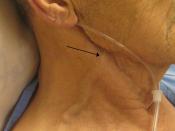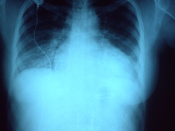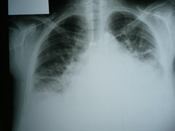Hello James! You will be taking a drug called Digoxin. You are probably familiar with this drug because you were on this drug while you were in the hospital. We have however, adjusted the dosage of the drug so that it doesn't cause more harm on your kidney function. The strength of the digoxin tablet you will be taking is 0.125 mg. Digoxin is indicated for the use in relieving the symptoms of congestive heart failure and/or atrial fibrillation. It is a drug that will help a weakened heart to function properly by increasing the strength of the heart muscle and maintaining the normal heart rhythm. Take one tablet by mouth with a glass of water. It is best to take digoxin on an empty stomach or one to two hours after meals. If you miss a dose, take it as soon as you can. If it is almost time for your next dose, take only that dose.
Do not take double or extra doses. There are several medicines (OTC and prescription) that can interact with digoxin. These include antacids, beta-blockers, barbiturates, certain hormones, antibiotics, cold and flu medicines and herbal supplements and many more. Tell your doctor if you stop or start any new medication. Do not treat yourself with non-prescription medicines for pain, allergies, coughs or colds, without advice from your physician. Side effects that you should report to your doctor immediately include: changes in vision, confusion, diarrhea or constipation, fainting spells, fast or slow heartbeat, headaches, loss of appetite, nausea, weakness or tiredness. Side effects that do not require medical attention (unless it continues or are bothersome) are breast enlargement in men and women. It will be important that you visit your physician for regular check ups on your progress. It is advisable that you check...


